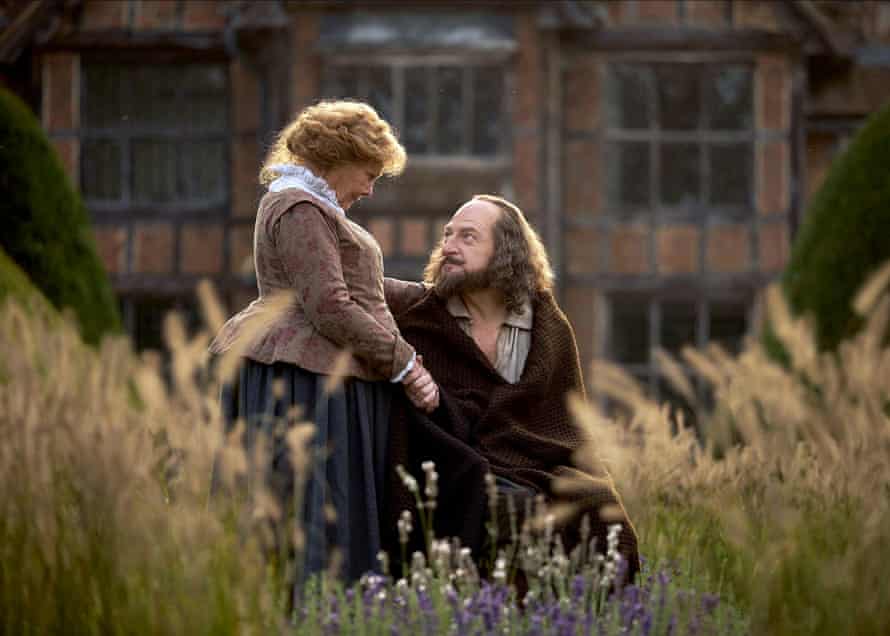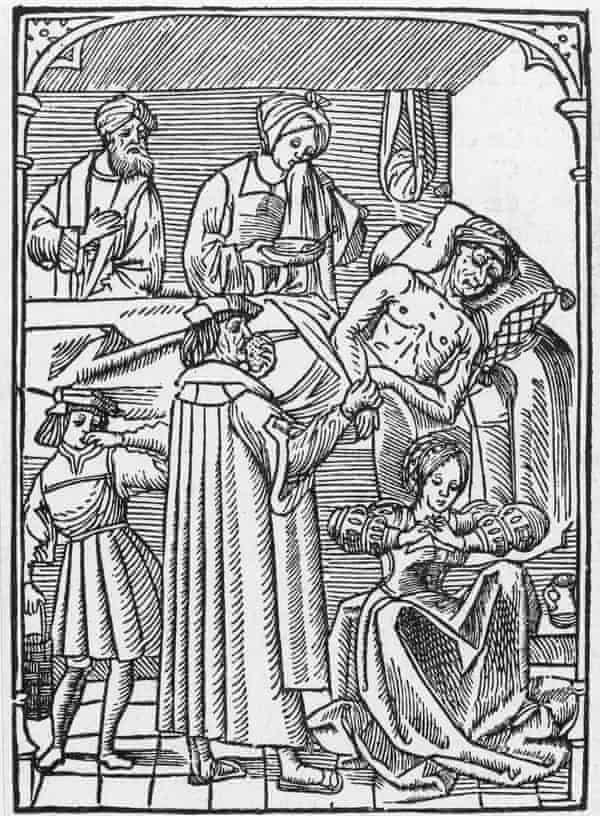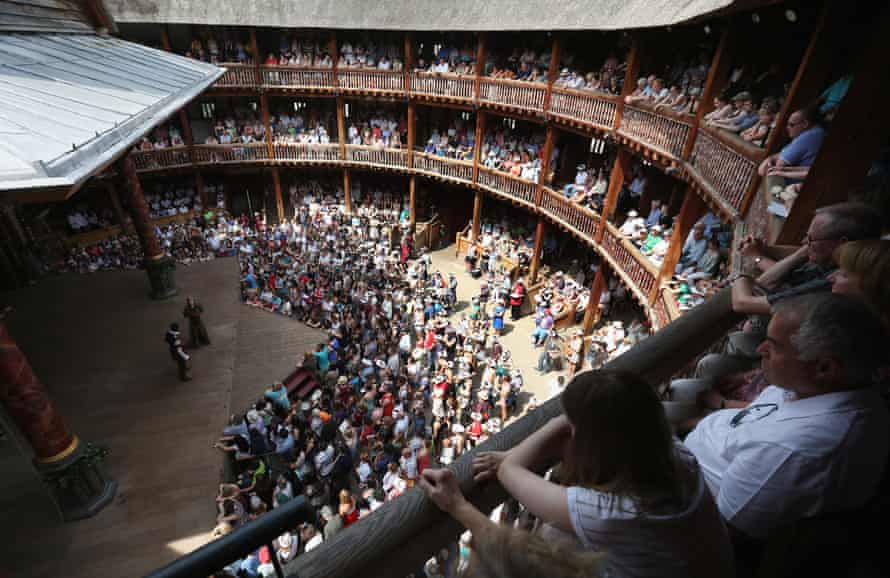Where Did King Charlemagne Learn to Read and Write
W hile those of us stuck in self-isolation or working from home watch TikTok videos and refresh liveblogs, a meme has been going just about that claims Shakespeare ready-made use of being unintegrated during the plague to write Lear. The Bard supposedly took advantage of the Globe's lengthy closure to get connected round top of his writing in-tray – coming up with Macbeth and Marcus Antoniu and Cleopatra in addition. If you weren't panicky enough just about how little you've achieved lately, this is surely a way to finger worse. Why aren't you finally dusting bump off that novel or screenplay you've been itch to write? It's what the Bard would do, surely.
Yet, is IT in reality apodictic, the bit about Shakespeare? Well, maybe. Certainly it's fair to read that, like all Elizabethans, the playwright's life history was affected by the symptom plague in ways that are all but impossible to conceive now, even midmost of Covid-19. As an baby, he was lucky to survive the disease: Stratford-upon-Avon was ravaged by a Brobdingnagian outbreak in the summertime of 1564, a few months later on he was born, and up to a quarter of the town's population died. Growing astir, Shakespeare would have heard endless stories about this cataclysm issue and kneeled in church in solemn remembrance of townsfolk who were lost. His father, John, was closely involved in relief efforts and attended a meeting to serve Stratford's poorest. IT was held outdoors because of the risk.
When Bard of Avon became a professional player, and then a dramatist and shareholder in a Capital of the United Kingdom troupe, plague presented some a professional and existential menace. Elizabethan doctors had no inkling that the disease was transmitted past rat fleas, and the moment an irruption flared up – often during the spring operating theater summer months, peak seasons for theatres – the regime scrabbled to ban lot gatherings. Given that the government were naturally suspicious of theatre anyway, as organism an incitement to lewdness and cross-bandaging and God knows what else, playhouses were invariably the first to close. (Brothels and stick out-baiting arenas, too, which some theatre owners relied on for income.) As a preacher of the time categorically put it: "The cause of plagues is sin, and the cause of sin is plays." Between 1603 and 1613, when William Shakespeare's powers as a writer were at their height, the Globe and other London playhouses were shut for an astonishing total of 78 months – to a higher degree 60% of the time.

These were dark periods for theatres in more senses than one. Actors were forced into some other work and, naturally, galore died (citizenry aged between 10 and their mid-30s were particularly vulnerable). Companies broke upfield or were unscheduled to term of enlistment in the provinces, hoping that news program of the pestilence didn't go up beforehand of them. As at least one Shakespeare biographer has sharpened extinct, there was a curious sarcasm to the closures: Elizabethan theatregoers loved to snack on hazelnuts, which may ingest helped repel plague-carrying fleas.
So how about the Lear theory? Not by any means impossible: we know the play was acted in first of James I on Boxing Day 1606, the low performance on record, and IT's a decent bet that it was scripted that year or the year before. Eastern Samoa the theatre historiographer James Shapiro points out, there was a major plague event in London in summer 1606, which light-emitting diode to the Globe and totally other London theatres being closed. The outbreak wasn't as bad as the peerless ternary age before that killed more a 10th of London's population, but it raged through and through the summertime and archaeozoic autumn, and the City of London parish where Shakespeare lived was uncomparable of those affected. Indeed, the playwright's very family was touched: one of those who died that year was his landlady, Marie Mountjoy.
When you hump this, it's steely not to hear the echoes in Lear, arguably the bleakest tragedy Shakespeare wrote. The humor in the metropolis must have been ghastly – deserted streets and closed shops, dogs running free, carers carrying three-animal foot staffs painted red so everyone else unbroken their distance, church bells tolling endlessly for funerals – and something similar seems to be on in the dyed-out world of the play.
The text is saturated by images of death, chaos, nihilism and desperation, and everyone seems to feel the chill. As Gloucester morosely observes: "Love cools, friendship falls off, brothers divide; in palaces, treason; and the bond cracked 'twixt son and father … we take over seen the best of our clip." We don't know for certain that Edward Lear was a plague text – it's nowhere hot as hard-core as Ben Jonson's The Alchemist, Beaver State Dekker's ironically eligible journalistic pamphlet The Wonderful Year, which relates the grisly events of 1603 – only it certainly feels like it.

It's not the only Shakespeare play to make extension to plague Beaver State pestilence, an always-award reality for the playwright and his contemporaries. Although there aren't more direct references to bubonic plague in his scripts, it shadows the sharpness of the frame, more matte than seen. Occasionally it's a plot device, Eastern Samoa in Romeo and Juliet, where an irruption catches the messenger sent by Friar Laurence and forces him into quarantine. This means the letter carrying news that Juliet has faked her destruction doesn't touch Romeo. Sooner in the playact, Mercutio's line in Act Three: "A plague on both your houses!", might have raised a grim chuckle, even if information technology most likely referred to another lethal disease of the time, variola.
But in the plays written after that appalling outbreak of 1603, when even King James's coronation had to be postponed, disease metaphors seem to taint Shakespeare's work. The little-performed Timon of Athens culminates in a man sending himself into exile, where the word "plague" is barely off his lips: "Plagues … Your potent and health problem fevers quite a little / On Athens!" … "be crowned with plagues" … "station them back the molest / Could I but catch it for them". Mensuration for Measure, which is atomic number 3 close as Shakespeare ever got to depicting the London of his own time, features brothels and parallel bars abruptly close by an autocratic governing, as they so ofttimes were actually.
Macbeth, conceivably holographic during the 1606 epidemic, contains a short-change, snarled speech that would have struck fear into many spectators: "The dead humans's knell / Is there scarce asked for World Health Organization, and good workforce's lives / Expire earlier the flowers in their caps / Moribund or ere they sicken." As Shapiro notes: "Though less than four lines long, there's probably not a better verbal description of the terror and unease plague carried with IT." And King Lear is even more viciously matrilineal. Lear's chief assistant, Kent, yells at the servant Oswald: "A plague upon your epileptic phiz!" King Lear describes the "plagues that hang in this pendulous air", referencing the communal theory that the disease could glucinium disseminate away airborne transmission. And in one of his numerous rants, the King calls his daughter Goneril "a plague sore, an embossed carbuncle in my / Corrupted blood" – a nastily specific reference to enlarged lymph nodes, matchless of the symptoms of bubonic chevvy. Quite a affair to say to your daughter.

Whether the beset was a good thing for Shakespeare personally is more doubtful. For one thing, as a shareholder in two playhouses and a keep company, He will have been American Samoa anxious arsenic any West End manufacturer in 2020 about theatre closures, the effect along the bottom line, and whether in that location was even any spot in him generating new scripts if no more one could stage them. For another, we know he worked intimately with actors, his almost trusted collaborators, and may even have scrawled his plays in the theatre building; every bit a busy actor-writer-manager old to doing 17 things at at one time, closing off wasn't his favored mode, as far as we posterior tell. And IT's barely as if beset multiplication were relaxing, particularly if you were trapped in the city. Shakespeare's star sign happening Silver Street faced a church whose bells would have been constantly clanging for molest victims: no escape there.
It's worth observant some other point, too. During a previous terrible harry outbreak in June 1592, when the theatres were restricted for nearly sise months, Shakespeare rotated to verse: his long narrative poems Venus and Adonis and The Rape of Lucrece were both composed during this time, perhaps because their young author was desperate for a more reliable source of income. If the playhouses had stayed shut and his pandemic-forced career American Samoa a poet had taken over off, there might possess been no Edward Lear – or Romeo and Juliet, Hamlet, Macbeth, Antony and Cleopatra, or some of Shakespeare's unsurpassable industrial plant.
Where Did King Charlemagne Learn to Read and Write
Source: https://www.theguardian.com/stage/2020/mar/22/shakespeare-in-lockdown-did-he-write-king-lear-in-plague-quarantine
0 Response to "Where Did King Charlemagne Learn to Read and Write"
Post a Comment